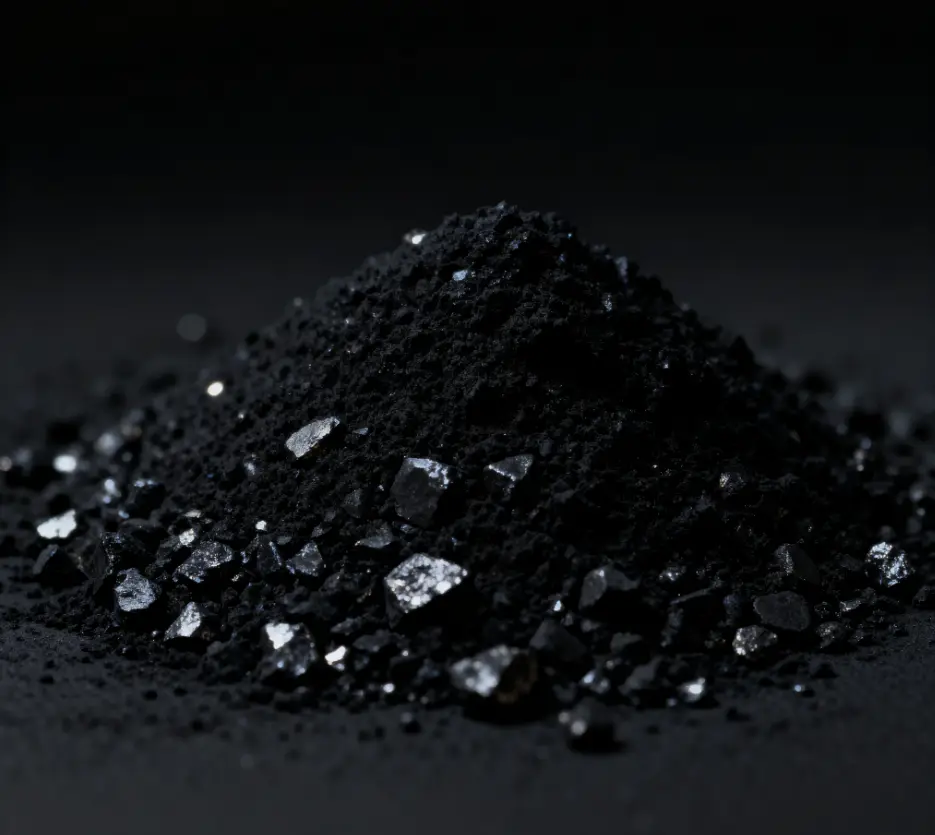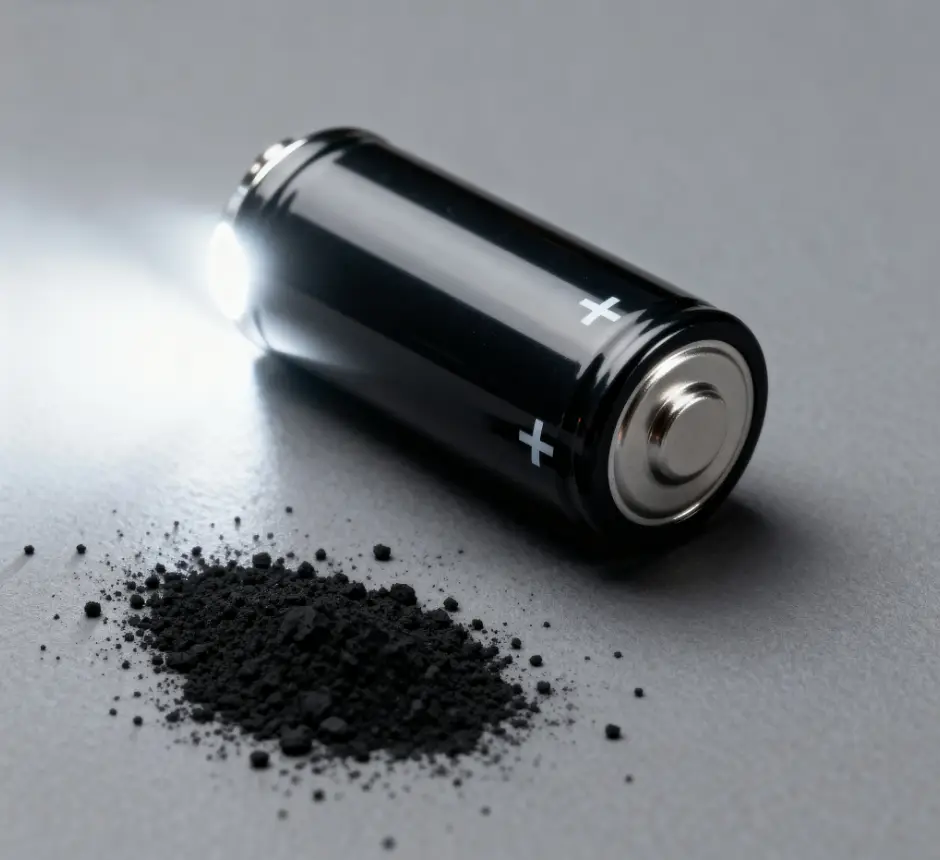Iron pyrite powder (FeS₂), often referred to as fool’s gold due to its golden luster, has long been regarded as a mineral with ornamental value. However, with recent innovations in energy storage technology, this mineral has gained attention as a key component in the development of next-generation lithium-ion batteries. This article examines how iron pyrite powder can improve the performance of lithium iron phosphate (LFP) batteries, which are essential for the electric vehicle (EV) industry and renewable energy storage solutions.
Table of Contents
The Role of Iron Pyrite Powder in Lithium-Ion Battery Technology
Lithium-ion batteries have revolutionized energy storage in industries such as electric vehicles, portable electronics, and renewable energy. Among various types of lithium-ion batteries, lithium iron phosphate (LFP) batteries stand out for their safety, longevity, and environmental benefits. However, despite these advantages, LFP batteries still face limitations in terms of energy density and overall performance. Here, iron pyrite powder offers a promising solution.
Iron pyrite (FeS₂), consisting of iron and sulfur, has been studied for its potential as a material for battery electrodes. Due to its abundance, low cost, and environmentally friendly composition, iron pyrite could be a game-changer in lithium-ion battery technology, enhancing energy density, charge speed, and efficiency.
Why Iron Pyrite Powder Is Key to Next-Generation Batteries
The growing interest in iron pyrite powder for batteries can be attributed to several key factors:
- High Theoretical Capacity: Iron pyrite boasts a higher theoretical capacity than traditional cathode materials, enabling more energy storage per unit of material. This could increase the overall energy density of the battery.
- Abundant and Low-Cost: Unlike rare metals such as cobalt and nickel, iron pyrite is widely available and cost-effective, making it an attractive option for affordable battery solutions.
- Environmental Friendliness: Iron pyrite is non-toxic and poses fewer environmental risks compared to cobalt, which is associated with severe ethical concerns and environmental damage. This makes iron pyrite-based batteries more sustainable and eco-friendly.
- Improved Performance: Research suggests that iron pyrite can enhance cycle life, stability, and charging efficiency of lithium-ion batteries, offering faster charging times and longer-lasting energy storage.
How Iron Pyrite Powder Improves Lithium-Ion Batteries
When used in LFP batteries, iron pyrite powder serves as a source of both iron and sulfur, contributing to the formation of lithium polysulfides. This interaction boosts the electrochemical performance of the battery, leading to several key improvements:
- Increased Energy Density: The addition of iron pyrite powder increases the capacity and charge-discharge rate, resulting in longer-lasting and higher-performing electric vehicle (EV) batteries.
- Enhanced Rate Capability: Iron pyrite powder allows the battery to charge and discharge at higher rates, making it more suitable for rapid energy delivery, particularly for applications like electric vehicles.
- Improved Cycle Life: The use of iron pyrite powder enhances the stability and cycle life of lithium-ion batteries, making them more durable and extending their lifespan, which is vital for EVs and energy storage systems.
Challenges in Using Iron Pyrite Powder and How to Overcome Them
While the potential of iron pyrite powder in lithium-ion batteries is exciting, there are challenges to overcome:
- Low Conductivity: Iron pyrite has low electrical conductivity, which can hinder its performance in battery applications. However, coating iron pyrite particles with conductive materials like carbon can address this issue and improve performance.
- Structural Degradation: During repeated charge cycles, iron pyrite can undergo structural degradation, leading to a reduction in battery capacity. Researchers are exploring methods such as nanostructuring and composite materials to stabilize the structure and increase durability.
- Sulfur Leaching: The sulfur in iron pyrite may leach out over time, affecting the stability and performance of the battery. Scientists are working on ways to trap and stabilize sulfur in hybrid materials to prevent leaching and improve efficiency.
Future Prospects and Applications for Iron Pyrite Powder in Batteries
As researchers continue to address these challenges, iron pyrite powder holds immense potential for a range of applications:
- Electric Vehicles (EVs): As the demand for electric vehicles rises, the need for affordable, high-performance batteries becomes crucial. Iron pyrite-based batteries could offer a cost-effective, sustainable solution that meets the growing demand for EV energy storage.
- Renewable Energy Storage: Energy storage is vital for renewable energy, particularly solar and wind power. Iron pyrite-based batteries could help store energy more efficiently, enabling reliable power delivery even when renewable energy sources are not producing.
- Consumer Electronics: The demand for more powerful and long-lasting batteries in consumer electronics such as smartphones, laptops, and wearables could benefit from iron pyrite-based technology.
The Future of Battery Technology with Iron Pyrite Powder
Iron pyrite powder offers a unique opportunity to enhance the performance of lithium-ion batteries, particularly lithium iron phosphate (LFP) batteries. Its abundance, low cost, and environmental sustainability make it an attractive alternative to traditional materials like cobalt. While challenges like low conductivity and sulfur leaching remain, ongoing research is focused on finding solutions to improve the material's stability and performance. As the world shifts towards a more sustainable, electrified future, iron pyrite powder could play a pivotal role in revolutionizing battery technology and supporting the growth of electric vehicles and renewable energy systems.


